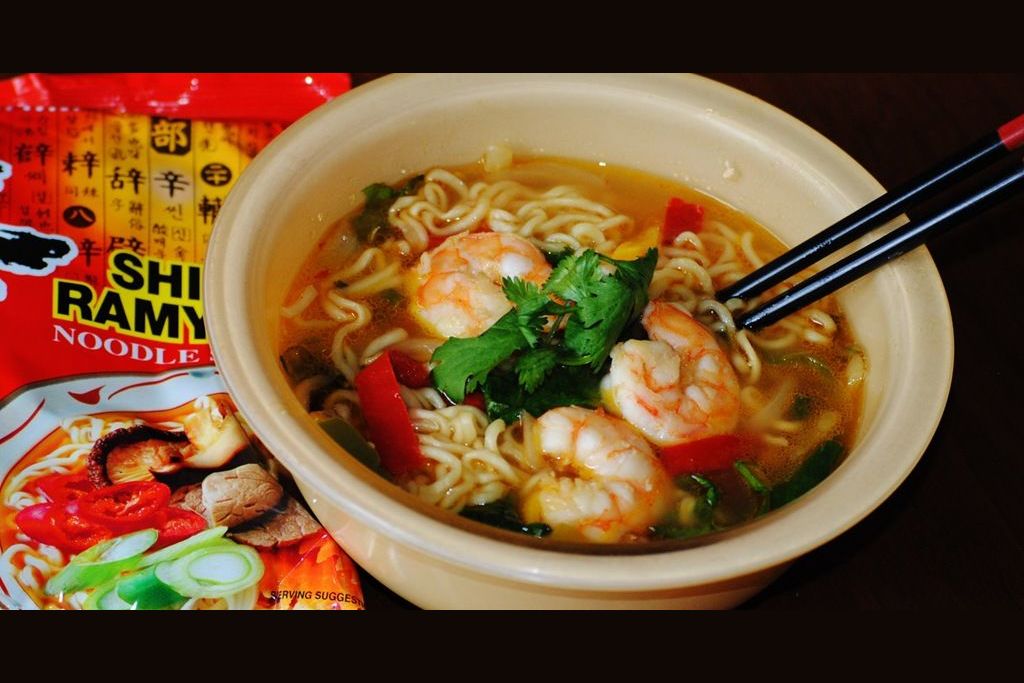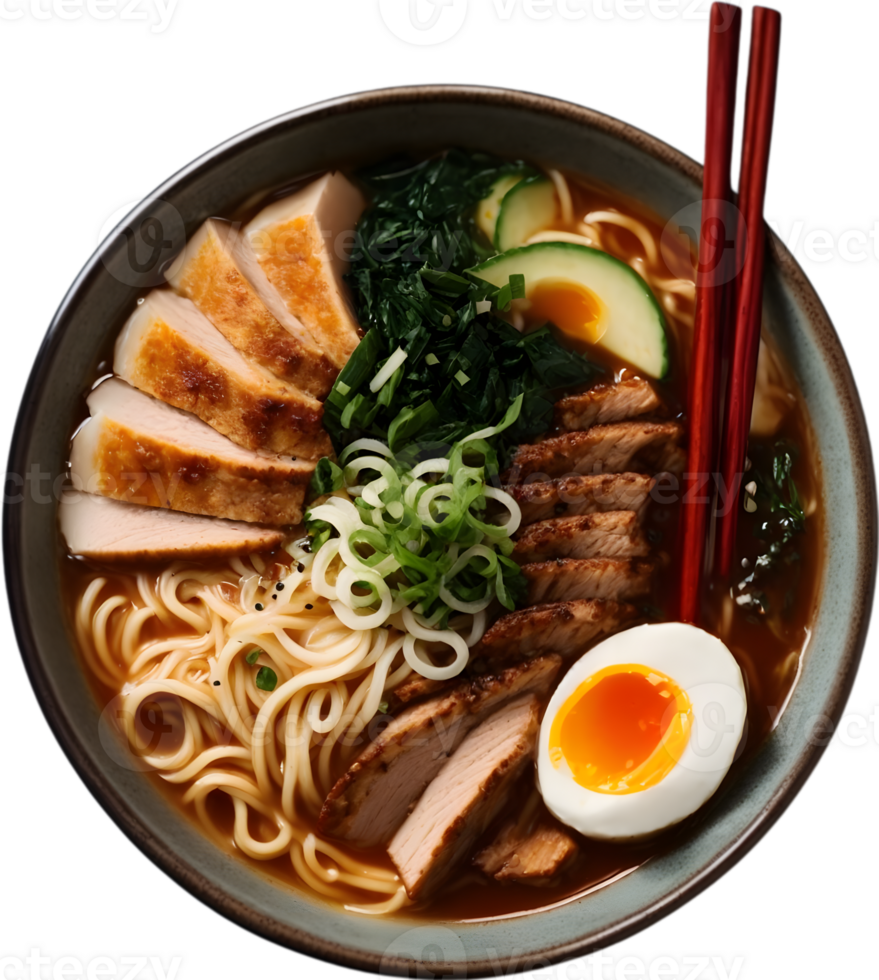There’s nothing quite like enjoying a steaming bowl of ramen noodles, but have you ever wondered how to pronounce this beloved dish correctly? Ramen has become a global phenomenon, loved by food enthusiasts for its comforting flavors and versatility. Yet, the pronunciation of "ramen noodles" often leaves people puzzled. Whether you're ordering at a high-end Japanese restaurant or grabbing an instant packet at the grocery store, knowing how to pronounce ramen noodles can make all the difference in your dining experience. This article will not only guide you through the correct pronunciation but also delve into the rich history and cultural significance of this iconic dish.
Ramen noodles have transcended their humble beginnings in Japan to become a staple in kitchens worldwide. However, the pronunciation varies depending on regional accents and cultural influences. While some people say "rah-men," others opt for "ram-in." So, which one is correct? The confusion is understandable, given the global reach of this dish. In this article, we will explore the origins of ramen, its pronunciation nuances, and how to confidently say "ramen noodles pronounced" like a pro.
Whether you're a foodie looking to impress your friends or simply curious about the correct way to say "ramen noodles pronounced," this guide will provide you with the knowledge and confidence to navigate this culinary world. We’ll cover everything from the history of ramen to its global popularity, ensuring you have a comprehensive understanding of this beloved dish. Let’s dive in and unravel the mystery of ramen noodles once and for all.
Read also:Discover The Luxurious Grand Solmar Resort Cabo San Lucas A Tropical Paradise
How Did Ramen Noodles Originate?
Ramen noodles have a fascinating backstory that dates back to early 20th-century Japan. Although they are now synonymous with Japanese cuisine, ramen's origins can be traced to China. Chinese immigrants brought their noodle-making techniques to Japan, where they were adapted and transformed into what we now know as ramen. Over time, Japanese chefs refined the recipe, incorporating local ingredients and flavors to create a distinctly Japanese dish.
One of the key factors in ramen's evolution was the post-World War II era, when Japan experienced a food shortage. The U.S. occupation introduced large quantities of wheat flour, which became the primary ingredient for ramen noodles. This period marked the beginning of ramen's widespread popularity, as it became an affordable and filling meal for the masses. Today, ramen is celebrated as one of Japan's greatest culinary exports, enjoyed by millions around the globe.
What Makes Ramen Noodles Unique?
Unlike other types of noodles, ramen is characterized by its rich broth, tender noodles, and diverse toppings. The noodles themselves are made from wheat flour, salt, water, and kansui, an alkaline mineral water that gives them their distinctive texture and yellow hue. The broth can range from creamy tonkotsu to light shoyu, each offering a unique flavor profile. Toppings such as slices of pork, seaweed, green onions, and soft-boiled eggs further enhance the ramen experience, making it a dish that satisfies both the palate and the soul.
Why Is the Pronunciation of Ramen Noodles Important?
Have you ever been in a situation where you hesitated to order ramen because you weren’t sure how to pronounce it? You’re not alone. The correct pronunciation of "ramen noodles pronounced" can vary depending on where you are in the world. In Japan, the pronunciation is closer to "rah-men," with a soft "e" sound. However, in English-speaking countries, many people say "ram-in," with a more pronounced "i" sound. Understanding these nuances can help you communicate more effectively when discussing or ordering ramen noodles.
What Are the Common Mispronunciations of Ramen Noodles?
One of the most common mispronunciations of ramen noodles is "ray-men," which is often heard in casual conversations. Another frequent mistake is saying "ram-en" with a long "a" sound, which deviates from the original Japanese pronunciation. These errors may seem minor, but they can impact how you’re perceived in a professional or cultural setting. To avoid these pitfalls, it’s essential to familiarize yourself with the correct pronunciation and practice saying "ramen noodles pronounced" until it becomes second nature.
How Can You Improve Your Pronunciation of Ramen Noodles?
Improving your pronunciation of ramen noodles is easier than you think. Start by listening to native Japanese speakers or watching videos where ramen is discussed. Pay attention to how they articulate the word and try to mimic their pronunciation. Additionally, you can practice breaking down the word into syllables: "ra-men." Repeat this several times until you feel comfortable saying it naturally. Another helpful tip is to record yourself saying "ramen noodles pronounced" and compare it to authentic examples online.
Read also:Sol Aguileras Onlyfans Journey A Rising Star In Digital Content Creation
Is It Necessary to Pronounce Ramen Noodles Correctly?
This is a question that often arises when discussing food pronunciation. While it’s not strictly necessary to pronounce ramen noodles perfectly, doing so demonstrates respect for the culture and traditions behind the dish. Imagine traveling to Japan and ordering ramen with confidence, knowing you’re saying it the right way. This small effort can enhance your dining experience and foster a deeper appreciation for the culinary art of ramen noodles pronounced.
Where Can You Learn More About Ramen Noodles Pronounced?
If you’re eager to expand your knowledge of ramen noodles pronounced, there are numerous resources available. Start by exploring cookbooks that focus on Japanese cuisine, as they often include pronunciation guides and cultural insights. Online platforms such as YouTube and food blogs also offer valuable information, with many creators sharing their expertise on ramen pronunciation and preparation. Additionally, attending ramen festivals or workshops can provide hands-on experience and opportunities to learn from experts in the field.
Who Are the Experts in Ramen Noodles Pronounced?
When it comes to ramen noodles pronounced, several chefs and food writers have established themselves as authorities on the subject. These individuals have dedicated their careers to studying and promoting Japanese cuisine, offering valuable insights into the nuances of ramen pronunciation. Some notable names include Ivan Orkin, a renowned ramen chef based in Japan, and Sasha Marx, a food writer known for her in-depth analysis of global cuisines. Their work serves as a testament to the importance of respecting cultural traditions when discussing food.
How Do Cultural Differences Affect Ramen Noodles Pronounced?
Cultural differences play a significant role in how ramen noodles pronounced are perceived and consumed around the world. In Japan, ramen is more than just a meal; it’s a symbol of national pride and identity. The attention to detail in preparation and presentation reflects the country’s dedication to craftsmanship and excellence. In contrast, Western cultures often view ramen as a quick and convenient dish, leading to variations in pronunciation and preparation methods. Understanding these cultural differences can enrich your appreciation of ramen noodles pronounced.
Can You Master the Art of Saying Ramen Noodles Pronounced?
Mastering the art of saying ramen noodles pronounced is an achievable goal with the right approach. By combining theoretical knowledge with practical application, you can develop a confident and accurate pronunciation. Begin by immersing yourself in the world of ramen, exploring its history, ingredients, and cultural significance. Engage with communities passionate about Japanese cuisine, and don’t hesitate to ask questions or seek feedback. Over time, you’ll find yourself effortlessly saying "ramen noodles pronounced" with precision and flair.
What Are the Benefits of Knowing How to Pronounce Ramen Noodles?
Knowing how to pronounce ramen noodles correctly offers several benefits beyond simply ordering food. It demonstrates cultural awareness and respect, which can enhance your interactions with people from diverse backgrounds. In professional settings, such as culinary schools or restaurants, proper pronunciation can set you apart and showcase your dedication to the craft. Furthermore, mastering the pronunciation of "ramen noodles pronounced" can deepen your connection to the dish, allowing you to appreciate its complexities on a more profound level.
Where Should You Begin Your Journey with Ramen Noodles Pronounced?
Your journey with ramen noodles pronounced begins with curiosity and a willingness to learn. Start by exploring the basics of ramen, from its ingredients to its preparation methods. As you gain confidence, challenge yourself to try different variations of ramen and experiment with new flavors. Surround yourself with like-minded individuals who share your passion for food, and don’t be afraid to ask questions or seek guidance. With time and practice, you’ll become an expert in the art of saying "ramen noodles pronounced" and enjoying this delightful dish.
Table of Contents
- How Did Ramen Noodles Originate?
- What Makes Ramen Noodles Unique?
- Why Is the Pronunciation of Ramen Noodles Important?
- What Are the Common Mispronunciations of Ramen Noodles?
- How Can You Improve Your Pronunciation of Ramen Noodles?
- Is It Necessary to Pronounce Ramen Noodles Correctly?
- Where Can You Learn More About Ramen Noodles Pronounced?
- Who Are the Experts in Ramen Noodles Pronounced?
- How Do Cultural Differences Affect Ramen Noodles Pronounced?
- Can You Master the Art of Saying Ramen Noodles Pronounced?
As you embark on your ramen journey, remember that learning how to pronounce ramen noodles is just the beginning. This dish offers endless possibilities for exploration and enjoyment, whether you’re savoring a bowl at a local restaurant or experimenting with recipes in your own kitchen. By embracing the culture and traditions behind ramen noodles pronounced, you’ll unlock a world of flavors and experiences that will delight your taste buds and enrich your life.


